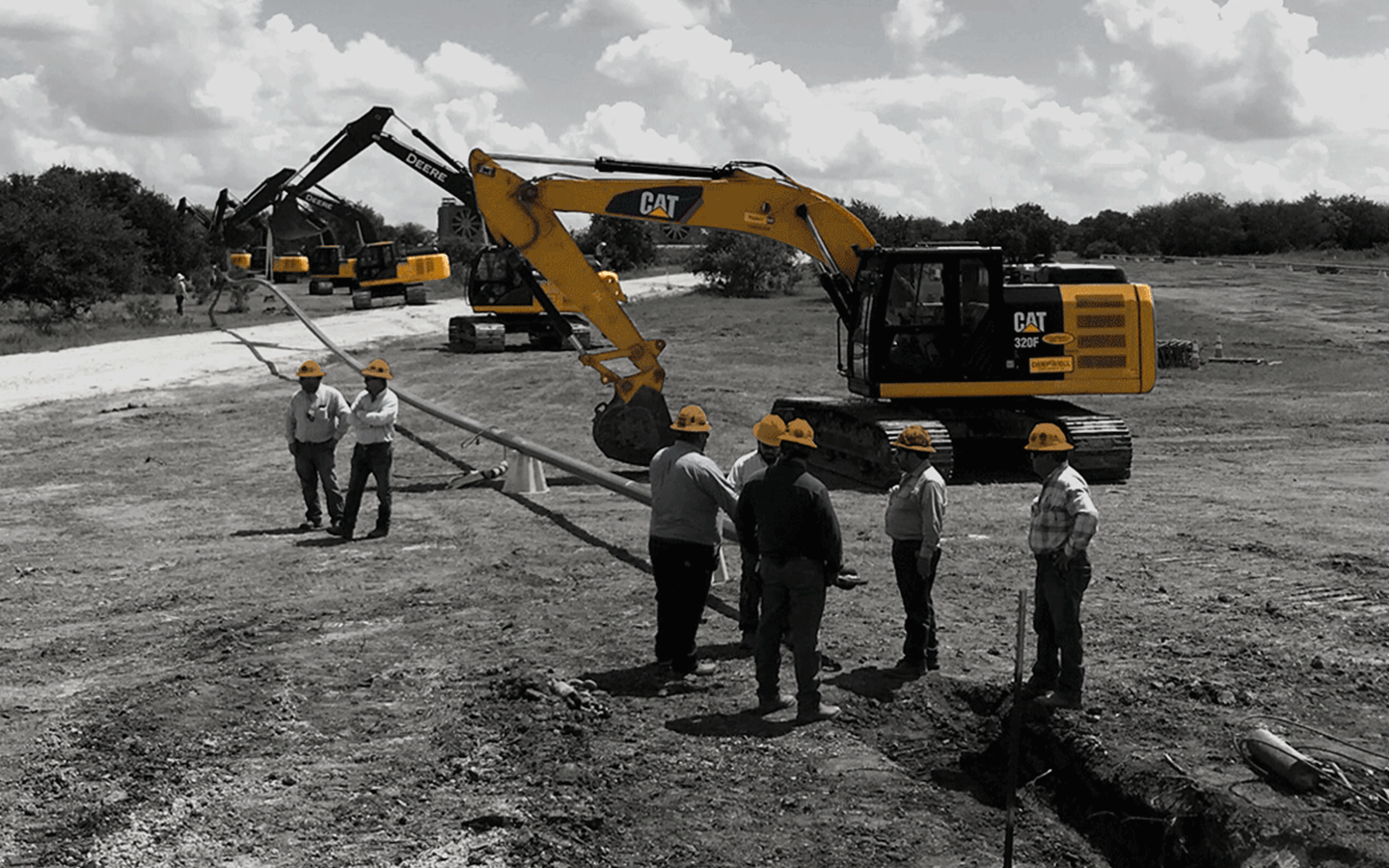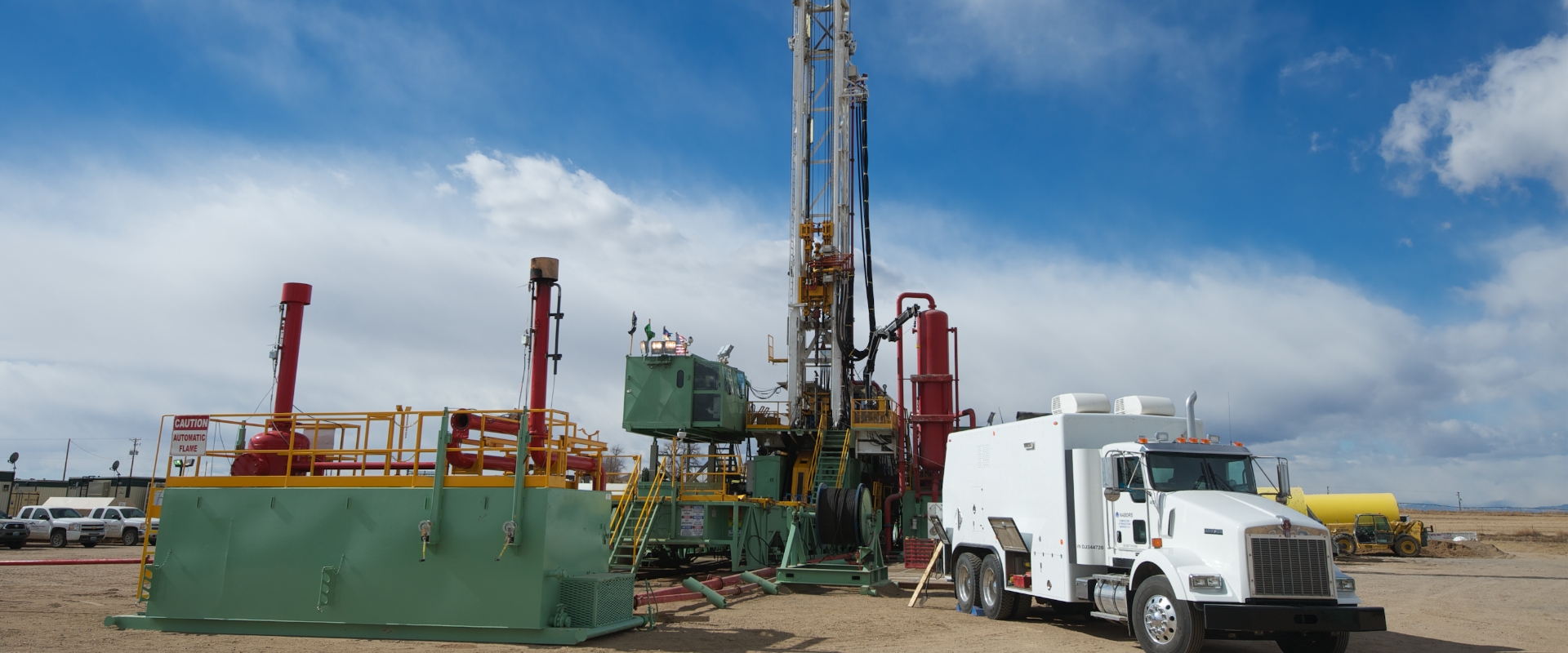A Comprehensive Guide to the Various Kinds Of Oil Field Equipment and Pipeline Equipment Available
The oil and gas market counts greatly on specific tools for reliable removal and transportation. Different sorts of equipment, from piercing rigs to tank, play important functions in this complicated procedure. Each tool offers unique features that add to overall operational success. Understanding these components is vital for any individual associated with the market. As the sector advances, so too do the technologies that support it. What developments are on the horizon?

Drilling Rigs: The Backbone of Oil Exploration
Drilling rigs act as the vital machinery in the domain of oil exploration, allowing firms to gain access to hydrocarbon books buried deep underneath the Planet's surface. These rigs come in numerous types, including land rigs, offshore rigs, and mobile units, each created to operate in details environments. Geared up with advanced innovation, piercing rigs can permeate geological developments with accuracy, guaranteeing effective source extraction. The structural stability and functional capacities of these rigs are vital, as they have to withstand extreme conditions and considerable stress. The choice of a boring gear affects the general task price and timeline, making it an important consideration for oil companies looking for to maximize their expedition efforts and maximize productivity in their operations.
Pumps: Important for Fluid Movement
In the oil removal procedure, the function of pumps is considerable, helping with the movement of liquids throughout various stages of production. Pumps are essential for transferring crude oil, water, and other fluids from below ground storage tanks to the surface area and then through pipelines to refineries. They come in various kinds, consisting of centrifugal, favorable displacement, and submersible pumps, each serving details functions based on the liquid characteristics and operational needs. Centrifugal pumps are frequently used for their efficiency in high-flow applications, while favorable variation pumps master managing viscous liquids. The option of pump impacts total effectiveness, functional security, and maintenance expenses. Correct choice and maintenance of pumps are vital for maximizing manufacturing and decreasing downtime in oil area operations.
Valves: Controlling Circulation and Pressure

Valves play an essential function in handling the circulation and pressure of liquids within oil fields and pipelines. Numerous kinds of valves serve unique applications, each created to satisfy particular features basic for reliable operation - Superior Rentals reviews. Recognizing the features and uses these valves is important for optimizing system performance and safety
Sorts of Valves
Crucial parts in oil area procedures, valves play a critical duty in regulating the circulation and stress of fluids within pipelines and equipment. Numerous kinds of shutoffs are used to satisfy the diverse needs of oil and gas manufacturing. Usual kinds consist of entrance valves, which offer a straight-line flow and marginal pressure drop; globe shutoffs, known for their strangling capacities; and sphere shutoffs, acknowledged for their quick on/off control. In addition, check shutoffs avoid backflow, while butterfly valves offer a light-weight option for controling flow. Each shutoff type is created with certain materials and configurations to withstand the rough problems typically found in oil areas, ensuring reliability and effectiveness in procedures. Recognizing these types is crucial for reliable system administration.
Valve Applications and Functions
While numerous types of valves serve distinct functions, their main applications rotate around managing circulation and stress within oil and gas systems. Shutoffs such as entrance, world, and ball shutoffs control liquid movement, making certain peak performance and safety and security. Entrance shutoffs are typically made use of for on/off control, giving marginal flow resistance. World valves, on the other hand, deal precise circulation law, making them suitable for throttling applications. Sphere shutoffs are preferred for their quick operation and limited sealing capacities. Additionally, stress safety valve are critical for protecting against system overpressure, protecting equipment stability. Overall, the proper option and application of valves improve functional efficiency, making certain the dependable transport of oil and gas via pipes and processing centers.
Compressors: Enhancing Gas Transport
Compressors play an important function in the efficient transportation of gas, ensuring that it relocates smoothly through pipes over cross countries. These tools raise the pressure of all-natural gas, allowing it to overcome friction and elevation adjustments within the pipeline system. In addition, compressors assist in the balancing of supply and need, accommodating variations in intake and production rates. Various kinds of compressors are utilized in the market, including centrifugal, reciprocating, and rotary screw compressors, each offering distinct advantages based on the operational demands. Routine maintenance of these compressors is vital to make best use of performance and minimize downtime, inevitably adding to a reliable gas transport network. Their essential feature highlights the significance of compressors in the overall oil and gas infrastructure.
Storage Tanks: Safe and Reliable Liquid Administration
Efficient transport of all-natural gas depends on different support group, one of which is the proper management of tank. These containers play a vital role in securely having liquids, guaranteeing that operational performance is maintained while lessening environmental threats. Built from sturdy materials, they are created to endure high stress and destructive elements. Appropriately sized and strategically situated, storage containers facilitate the smooth flow of gas and other liquids, preventing bottlenecks in supply chains. Normal maintenance and monitoring are imperative to find leaks or architectural problems, advertising security and compliance with governing standards. see here now Inevitably, the effective administration of storage space containers is important for the overall stability and integrity of the oil and gas industry's fluid handling systems.
Pipeline Solutions: Framework for Transportation
Pipeline systems act as the foundation of the oil and gas sector, helping with the reliable transportation of hydrocarbons over large ranges. These systems contain various components, including pipelines, valves, pumps, and compressors, all meticulously made to guarantee seamless circulation. The materials utilized in pipeline construction, frequently steel or high-density polyethylene, are selected for durability and resistance to deterioration. Pipeline networks can span throughout land and water, attaching manufacturing websites to refineries and distribution. Additionally, progressed technology makes it possible for real-time surveillance of flow prices and stress levels, improving functional performance. The critical positioning of these pipes lessens ecological influence while making best use of resource access, thus playing an important role in meeting power demands worldwide.
Security Equipment: Ensuring Employee and Environmental Management
The procedure of pipeline systems, while necessary for power transportation, also provides considerable security challenges for workers and the atmosphere. Safety equipment plays a significant duty in alleviating these risks. Individual protective equipment (PPE) such click reference as headgears, gloves, and non-slip footwear safeguards workers from physical hazards. In addition, gas detection systems keep track of for leakages, ensuring that damaging compounds do not position a threat to employees or the surrounding ecosystem. Emergency closure systems are imperative for rapidly halting operations during a crisis, preventing prospective catastrophes. Spill containment products, consisting of absorbents and barriers, are essential for minimizing ecological effect. Overall, buying comprehensive safety devices is vital for maintaining functional stability and protecting both employees and the environment in the oil and gas field.

Frequently Asked Concerns
How Do I Choose the Right Oil Field Equipment for My Project?
Selecting the ideal oil field equipment entails assessing job specs, budget plan constraints, and functional demands. Think about variables such as devices dependability, compatibility with existing systems, and the provider's reputation to assure peak efficiency and safety.
What Are the Maintenance Requirements for Oil Field Equipment?
Maintenance needs for oil area tools consist of routine assessments, lubrication, and timely repair work. Operators ought to also comply with maker guidelines, screen efficiency metrics, and warranty conformity with security policies to enhance longevity and performance.

Exactly How Can I Ensure Conformity With Environmental Rules?
To guarantee compliance with ecological policies, firms must perform normal audits, carry out finest methods, buy training, maintain proper paperwork, and remain upgraded on legislation (Superior rentals squeeze tools). Cooperation with ecological firms can additionally click site improve adherence to laws
What Is the Typical Life-span of Pipeline Equipment?
The average lifespan of pipeline tools generally varies from 20 to half a century, depending on factors such as worldly quality, environmental conditions, and upkeep methods. Regular evaluations can substantially affect longevity and functional effectiveness.
How Do I Securely Deliver Oil Field Equipment to Remote Locations?
Carrying oil field devices to remote areas calls for cautious planning, consisting of course assessment, safeguarding authorizations, utilizing appropriate lorries, and making sure safety and security procedures are complied with. Appropriate training and communication among staffs are necessary for successful transport.